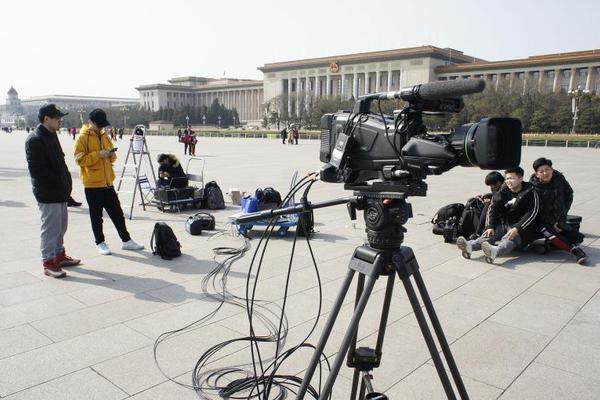Two weeks ago20p Archives The Atlantic's editor-in-chief Jeffrey Goldberg reported that national security advisor Michael Waltz had accidentally added him to a Signal group chat used by U.S. government officials planning to bomb Yemen. Now we may finally know how it happened.
An internal White House investigation has determined that the Signalgate scandal was at least partially facilitated by a feature on Waltz's iPhone, according to The Guardian. Specifically, it was the iPhone's ability to detect a phone number in a text, algorithmically evaluate who it's likely to belong to, and suggest that a user add it to the relevant existing contact in their address book.
SEE ALSO: Waltz and staff reportedly used Gmail for official U.S. government business, raising security issuesThe Guardianreports that Waltz came to have Goldberg's number last October, after the reporter sought comment from Trump's presidential campaign for a story. Goldberg's emailed inquiry was forwarded to Trump spokesperson Brian Hughes, who copied and pasted its contents into a text message to Waltz — including Goldberg's email signature. Of course, this included Goldberg's phone number.
Waltz didn't end up calling Goldberg at the time. However, he did save the reporter's number in his iPhone under Hughes' name. He apparently did so at his iPhone's suggestion, after its algorithm erroneously concluded that Goldberg's number belonged to Hughes.
After that, it was really only a matter of time before things went wrong. So it seems that when Waltz attempted to add Hughes to the Yemen bombing Signal group chat in March, he inadvertently added Goldberg instead, making the reporter privy to sensitive military information. The significant security blunder called the Trump administration's digital security practices into question, with other breaches quickly discovered within days.
Waltz likely feels at least partially vindicated by the White House's findings. Speaking to Fox Newsthe day after The Atlanticpublished Goldberg's article, Waltz claimed that he had no idea how the reporter's number came to be in his phone, and speculated that "somehow it [got] sucked in."
Even so, contact update suggestions are mere suggestions. It's always up to users to check that the information is correct, as well as whether to apply the changes or not. In this case, it appears that Waltz simply accepted his iPhone's suggestion without checking the number.
Mashable was unable to trigger an iPhone contact information update suggestion in our own testing, and has reached out to Apple for comment.
In response to Waltz' comments to Fox News, Goldberg told NBC News, "[T]his isn't The Matrix. Phone numbers don't just get sucked into other phones. I don't know what he's talking about there. My phone number was in his phone because my phone number is in his phone."
It's a good reminder that as dazzling and convenient as technology may be, it isn't infallible. Be actively engaged, double check information, and never trust blindly — especially if you're a U.S. national security advisor.
(Editor: {typename type="name"/})
 Turtle Beach Recon 50P gaming headset deal: 28% off
Turtle Beach Recon 50P gaming headset deal: 28% off
 A bunch of people bought shares in a company that they thought was Snapchat
A bunch of people bought shares in a company that they thought was Snapchat
 The six terrible ways your life will change when Net Neutrality dies
The six terrible ways your life will change when Net Neutrality dies
 Chelsea Handler trolls Trump with a Nordstrom bag outside the White House
Chelsea Handler trolls Trump with a Nordstrom bag outside the White House
 NYT Connections Sports Edition hints and answers for April 17: Tips to solve Connections #206
NYT Connections Sports Edition hints and answers for April 17: Tips to solve Connections #206
5 Ways to Access a Locked Windows Account
Attention Lorne Michaels: We've got a taker to play Betsy DeVos on 'SNL'
 Christine Baranski wants in on the Saturday Night Livepolitical sketches.In an interview with Vanity
...[Details]
Christine Baranski wants in on the Saturday Night Livepolitical sketches.In an interview with Vanity
...[Details]
Japan is rolling out these hilariously obvious signs to help clueless tourists
 Ever gotten confused in a foreign country because you couldn't understand the signs?Japan knows your
...[Details]
Ever gotten confused in a foreign country because you couldn't understand the signs?Japan knows your
...[Details]
Supernatural: Rowena has to save Dean for once in episode 12x11
 Supernatural may have to change its motto from "never trust a witch" to "sometimestrust a witch." Fo
...[Details]
Supernatural may have to change its motto from "never trust a witch" to "sometimestrust a witch." Fo
...[Details]
Dell S3422DWG Gaming Monitor deal: save $100 at Amazon
 GET $100 OFF: As of now, Apr. 28th, the Dell S3422DWG Curved 34-inch 144Hz Gaming Monitor is on sale
...[Details]
GET $100 OFF: As of now, Apr. 28th, the Dell S3422DWG Curved 34-inch 144Hz Gaming Monitor is on sale
...[Details]
There's a new Hyperloop company, and its leader is a familiar face
 You can't keep a good Hyperloop visionary down. Just a few months after settling a particularity acr
...[Details]
You can't keep a good Hyperloop visionary down. Just a few months after settling a particularity acr
...[Details]
This city wants to build a giant statue of the scary ghost it's named after
 It certainly makes for a haunting attraction.The Indonesian town of Pontianak -- the capital of the
...[Details]
It certainly makes for a haunting attraction.The Indonesian town of Pontianak -- the capital of the
...[Details]
Astronaut captures clearest footage yet of rare type of lightning
 Generally speaking, storms seen from space are pretty breathtaking. Lightning flashes, huge thunderh
...[Details]
Generally speaking, storms seen from space are pretty breathtaking. Lightning flashes, huge thunderh
...[Details]
NYT Connections Sports Edition hints and answers for May 19: Tips to solve Connections #238
 Connections: Sports Editionis a new version of the popular New York Times word game that seeks to te
...[Details]
Connections: Sports Editionis a new version of the popular New York Times word game that seeks to te
...[Details]
Former NSA contractor accused of stealing top secret documents says he was just a hoarder
 Harold Martin, 52, a private contractor for the National Security Agency (NSA) and a former U.S. Nav
...[Details]
Harold Martin, 52, a private contractor for the National Security Agency (NSA) and a former U.S. Nav
...[Details]
Best Samsung Frame deal: Free Music Frame with Frame Pro art TV purchase

People are terrible at remembering where they read news online

接受PR>=1、BR>=1,流量相当,内容相关类链接。